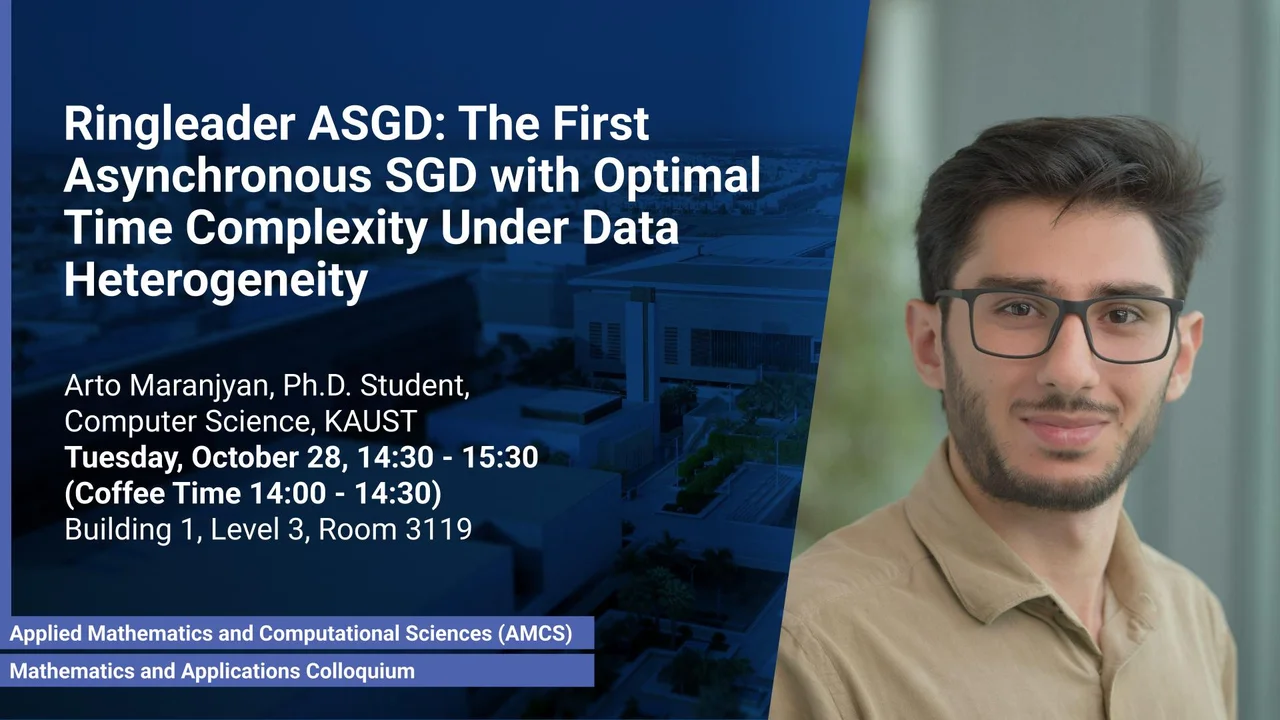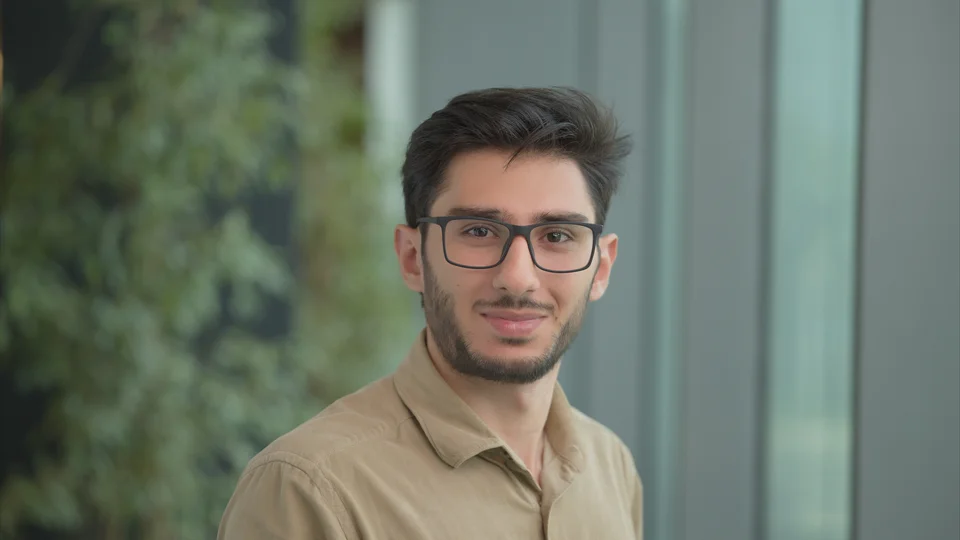
Ringleader ASGD: The First Asynchronous SGD with Optimal Time Complexity under Data Heterogeneity
This talk introduces Ringleader ASGD, the first asynchronous SGD algorithm that attains the theoretical lower bounds for parallel first-order stochastic methods in the smooth nonconvex regime, thereby achieving optimal time complexity under data heterogeneity and without restrictive similarity assumptions.
Overview
Asynchronous stochastic gradient methods are central to scalable distributed optimization, particularly when devices differ in computational capabilities. Such settings arise naturally in federated learning, where training takes place on smartphones and other heterogeneous edge devices. In addition to varying computation speeds, these devices often hold data from different distributions. However, existing asynchronous SGD methods struggle in such heterogeneous settings and face two key limitations. First, many rely on unrealistic assumptions of similarity across workers' data distributions. Second, methods that relax this assumption still fail to achieve theoretically optimal performance under heterogeneous computation times. We introduce Ringleader ASGD, the first asynchronous SGD algorithm that attains the theoretical lower bounds for parallel first-order stochastic methods in the smooth nonconvex regime, thereby achieving optimal time complexity under data heterogeneity and without restrictive similarity assumptions. Our analysis further establishes that Ringleader ASGD remains optimal under arbitrary and even time-varying worker computation speeds, closing a fundamental gap in the theory of asynchronous optimization.
Presenters
Brief Biography
Artavazd Maranjyan is a Ph.D. Candidate in Computer Science at King Abdullah University of Science and Technology (KAUST), advised by Prof. Peter Richtárik.
His work has been published in leading machine learning conferences such as ICML, ICLR, and UAI. He has received the CEMSE Dean’s List Award for academic and research excellence, and the Dean’s List Award upon joining KAUST.
Before starting his Ph.D., Artavazd earned his M.S. and B.S. degrees from Yerevan State University, where he co-authored several papers in harmonic analysis under the guidance of Prof. Martin Grigoryan.
